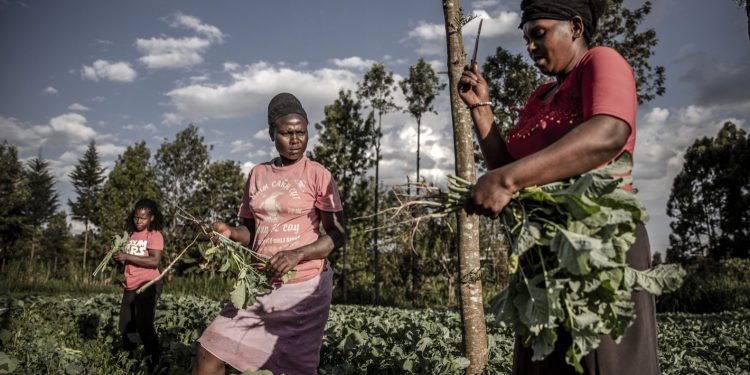The world’s US$630 billion a year in food and agriculture subsidies should to be re-directed, helping consumers to afford healthy food, according a UN report.
180 million more people are hungry than in 2015 – and most of this hunger arose before the Covid pandemic, according to the 2022 State of Food Security and Nutrition in the World, produced by the Food and Agriculture Organization, World Food Programme, World Health Organisation, International Fund for Agricultural Development, and UN Children’s Fund.
The cost of healthy food has risen to five times higher than an unhealthy diet, putting it out of reach for almost 3.1 billion people, 112 million more people than in 2019.
And so, the costs of death and disease from poor diets will exceed $1.3 trillion per year by 2030.
Nearly one in three people globally, 2.31 billion people, is moderately or severely food insecure – 350 million more people than in 2019, the year before Covid-19 unfolded.
“Healthy diets, crucial for enhancing food security and preventing all forms of malnutrition, are now further out of reach for people in every region in the world,” the report says.
“Agrifood is major source of global greenhouse gas emissions, placing excessive pressures on land and water”
“Existing policies have provided incentives for modern agrifood systems to evolve in such a way where the cost of a healthy diet is five times greater than the cost of diets, that meet energy requirements only through a staple cereal,” the report says.
“These policies have triggered the rise of low-priced foods of high energy density and minimal nutritional value.
“Diet-related health costs linked to mortality and non-communicable diseases (NCDs) are projected to exceed USD 1.3 trillion per year by 2030.
“At the same time, agrifood systems have become a major source of global greenhouse gas (GHG) emissions and are placing excessive pressures on land, water and other natural resource systems.
“The diet-related social costs of GHG emissions and the dietary patterns they support are projected to exceed USD 1.7 trillion per year by 2030.
“Switching to plant-based dietary patterns would reduce the social costs of GHG emissions by 41–74 percent by 2030.”
“Subsidies distort market prices, are environmentally destructive, and hurt Indigenous Peoples”
The report says that governments can invest in agrifood systems equitably and sustainably, with the same level of public resources.
A significant proportion of agriculture and food support by governments distorts market prices, is environmentally destructive, and hurts small-scale producers and Indigenous Peoples, while failing to deliver healthy diets to children and others who need them the most.
The subsidies, “in a way, have de facto created disincentives for producing nutritious foods. They have also encouraged monocultures in some countries, ceased the farming of certain nutritious products, and discouraged the production of some foods.
“The evidence suggests that if governments repurpose resources they will help make healthy diets less costly and more affordable for all.
“Subsidies to consumers represent the lowest share of all the support to food and agriculture. The evidence shows that policies supporting consumers can contribute to increasing consumption of nutritious foods.”
Of the seven 2030 global nutrition targets, only exclusive breastfeeding and stunting among children under five years of age have improved since 2012. No region lowered adult obesity, and the number of overweight children under five is increasing in more than half the world.
“Food industries influence global governance”
The report says governments could implement mandatory limits or voluntary targets to improve the nutritional quality of processed foods and drink products. They could legislate for more responsible food marketing, and implement nutrition labelling and healthy procurement policies.
Urging policy makers to counteract the influence of the food industry, the report says, “Food industries influence global governance, such as international food standards in the Codex Alimentarius Commission. Here, food industry actors exerted influence on the Codex process on the front-of-pack nutrition labelling and on setting the Codex standard for follow-up formula.”
It adds that a review of studies in Australia found that supermarkets set the terms of trade for suppliers, shape societal values regarding food, and lobby policymakers.
“This can affect governance of the agrifood system, the availability and affordability of healthy diets, public health and nutrition outcomes,” it said.
Social protection policies, such as state-funded minimum universal incomes, are vital, the report says, “to mitigate unintended consequences of reforms for vulnerable populations.”
It adds, “These reforms must be multisectoral, encompassing health, environment, transport and energy policies.”
The report says that food insecurity and malnutrition, the high cost of nutritious food, and inequity will continue until agrifood systems are transformed.
Further reading
- Global cost of poor diets could be reduced by 95%: The State of Food Security and Nutrition in the World 2020























